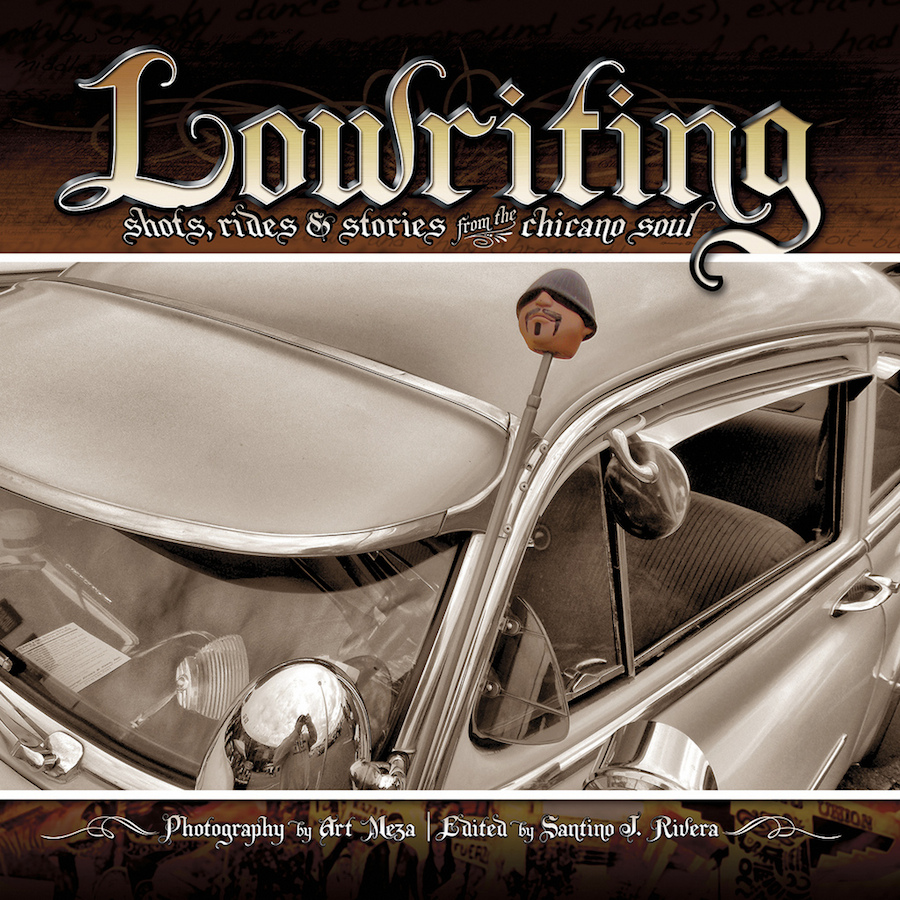 A row of bald-headed, broad-shouldered young men stand together in the middle of a small smoky dance club called Sound Base. They wear well pressed Dickies pants, Locs (wrap-around shades), extra-long flannel shirts or long cotton athletic shirts in black and gray. A few had T-shirts with images of lowrider cars as well as cholas and cholos. In the club’s parking lot, adjacent to a lumberyard, several lowered 1950s and 1960s Detroit-built cars display airbrushed murals and shiny chrome, the one exception being a caramel brown 1941 Chevy truck.
A row of bald-headed, broad-shouldered young men stand together in the middle of a small smoky dance club called Sound Base. They wear well pressed Dickies pants, Locs (wrap-around shades), extra-long flannel shirts or long cotton athletic shirts in black and gray. A few had T-shirts with images of lowrider cars as well as cholas and cholos. In the club’s parking lot, adjacent to a lumberyard, several lowered 1950s and 1960s Detroit-built cars display airbrushed murals and shiny chrome, the one exception being a caramel brown 1941 Chevy truck.
Click here for POCHO’s review of Lowriting, from which this special sneak preview is excerpted.
On the stage are two members of Quetzal, one of East Los Angeles’ most popular bands: Quetzal Flores and his long-time companion, Martha Gonzalez. Flores strums a jarana, a traditional stringed instrument from the Mexican Gulf port state of Veracruz. Gonzalez is seated astride a cajon, also used extensively in the Son Jarocho tradition of that state, and thumps with her hands and fingers a driving cadenced beat as she sings in Spanish and English, words heavily tinged with Mexican/Xicano cultural and political significance.

